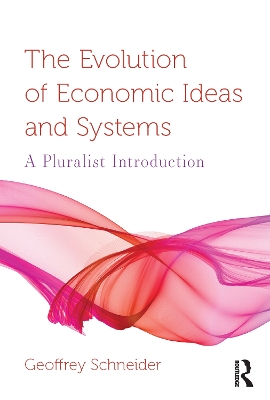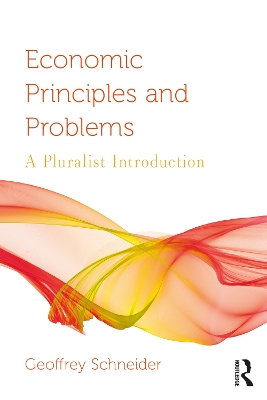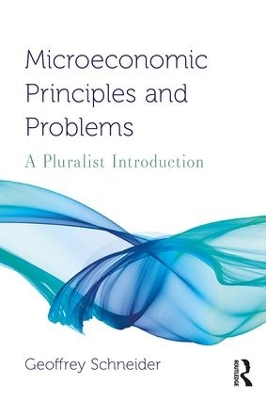Routledge Pluralist Introductions to Economics
4 total works
In order to fully understand the evolution and future growth of economic systems, we must draw on the lessons of economic history. The 2008 Financial Crisis, for example, mirrored past economic meltdowns with uncanny accuracy. Just like the Great Depression of the 1930s and the Savings and Loan Crisis of the 1980s, it featured deregulated lenders taking incredible risks with other people’s money. Historical analysis is crucial to understanding trends and patterns that can help us predict the future.
This text presents a ground-breaking, pluralistic introduction to economic history and the history of economic thought. Tracing the development of economic systems and economic thought, the text introduces students to the story from ancient times to contemporary capitalism, and also its critics. Focusing in particular on Smith, Marx, Veblen, and Keynes, the text encourages students to consider which ideas and systems are still relevant in the modern world. This book can be used as a standalone text for relevant classes or as a supplement in any principles course.
Economic Principles and Problems: A Pluralistic Introduction offers a comprehensive introduction to the major perspectives in modern economics, including mainstream and heterodox approaches. Through providing multiple views of markets and how they work, it leaves readers better able to understand and analyze the complex behaviors of consumers, firms, and government officials, as well as the likely impact of a variety of economic events and policies.
Most principles of economics textbooks cover only mainstream economics, ignoring rich heterodox ideas. They also lack material on the great economists, including the important ideas of Adam Smith, Karl Marx, Thorstein Veblen, John Maynard Keynes, and Friedrich Hayek. Mainstream books tend to neglect the kind of historical analysis that is crucial to understanding trends that help us predict the future. Moreover, they focus primarily on abstract models more than existing economic realities. This engaging book addresses these inadequacies. Including explicit coverage of mainstream economics and the major heterodox schools of economic thought—institutionalists, feminists, radical political economists, post-Keynesians, Austrians, and social economists—it allows the reader to choose which ideas they find most compelling in explaining modern economic realities.
Written in an engaging style and focused on real-world examples, this textbook brings economics to life. Multiple examples of how each economic model works, coupled with critical analysis of the assumptions behind them, enable students to develop a sophisticated understanding of the material. Digital supplements are also available for students and instructors. Economic Principles and Problems offers the most contemporary and complete package for any pluralist economics class.
Microeconomic Principles and Problems offers a comprehensive introduction to all major perspectives in modern economics, including mainstream and heterodox approaches. Through providing multiple views of markets and how they work, it will leave readers better able to understand and analyse the complex behaviours of consumers, firms, and government officials, as well as the likely impact of a variety of economic events and policies.
Most principles of microeconomics textbooks cover only mainstream economics, ignoring rich heterodox ideas. They also lack material on the great economists, including the important ideas of Adam Smith, Karl Marx, Thorstein Veblen, John Maynard Keynes and Friedrich Hayek. Mainstream books neglect the kind of historical analysis that is crucial to understanding trends that help us predict the future. Moreover, they focus on abstract models more than existing economic realities. This engaging book addresses these inadequacies. Including explicit coverage of the major heterodox schools of thought, it allows the reader to choose which ideas they find most compelling in explaining modern economic realities.
Written in an engaging style focused on real world examples, this ground-breaking book brings economics to life. It offers the most contemporary and complete package for any pluralistic microeconomics class.
Macroeconomic Principles and Problems: A Pluralist Introduction offers a comprehensive overview of the major topics in modern macroeconomics, from mainstream and heterodox perspectives.
This textbook examines the key macroeconomic problems and policy debates facing contemporary society, including economic crises, sustainability, fiscal and monetary policy, government debt, state-led vs. market-led approaches for growth, and unregulated trade vs. protectionism.
Written in an engaging style and focused on real-world examples, this textbook brings macroeconomics to life. Multiple examples of how each economic model works, coupled with critical analysis of the assumptions behind them, enable students to develop a sophisticated understanding of the material. Digital supplements are also available for students and instructors.
Macroeconomic Principles and Problems offers the most contemporary and complete package for any pluralist macroeconomics principles class.



